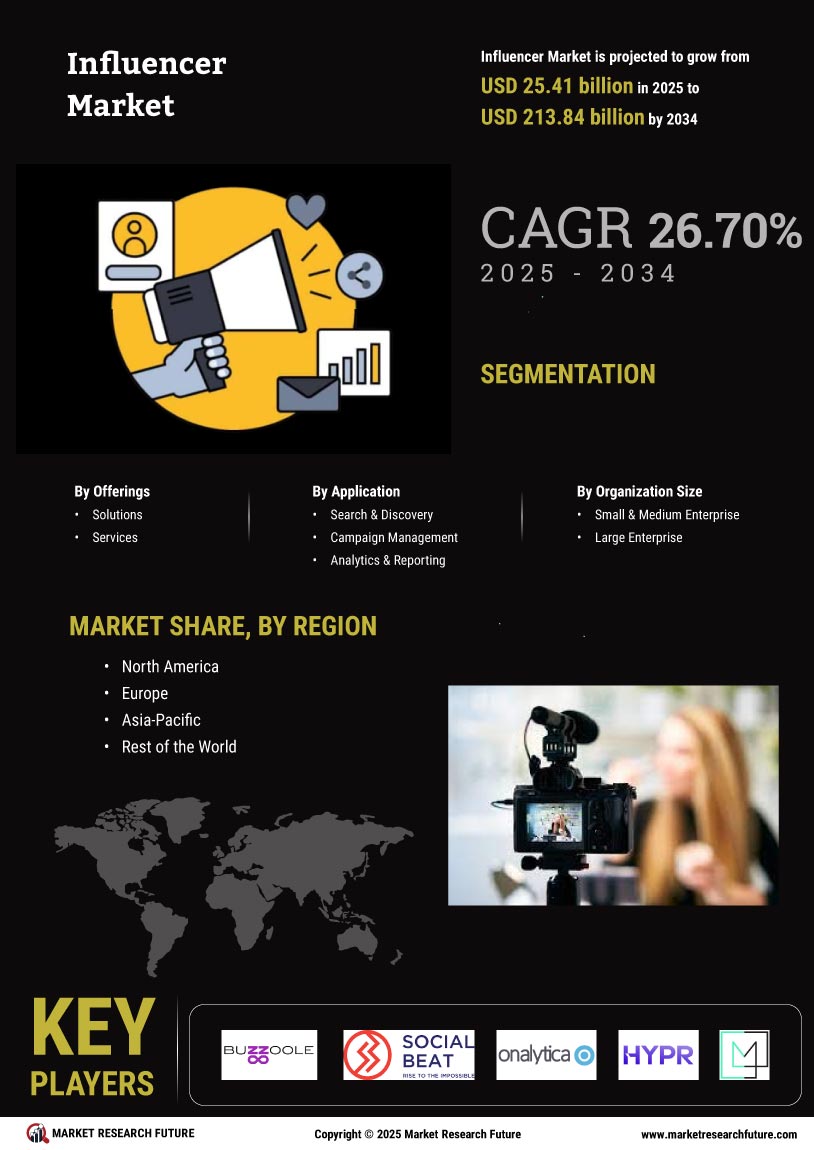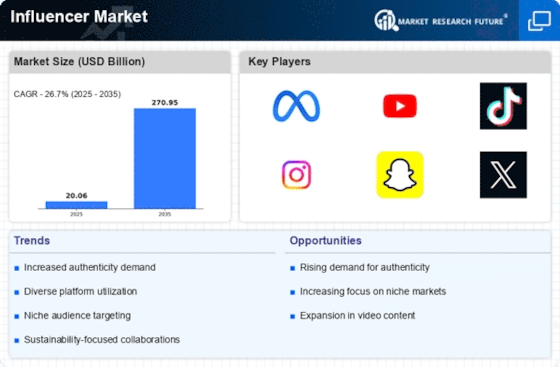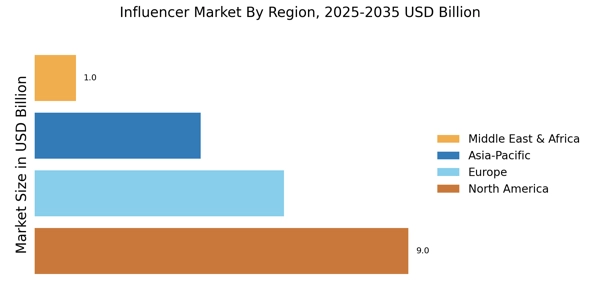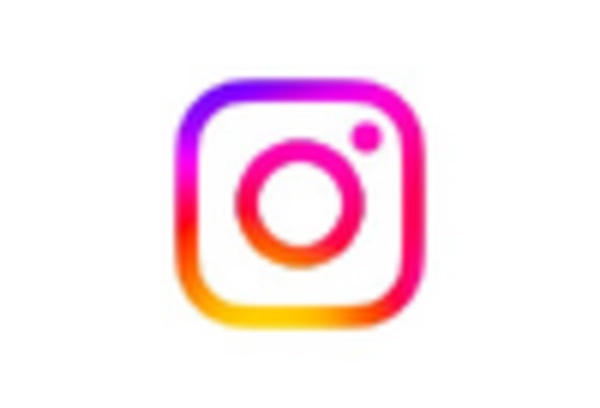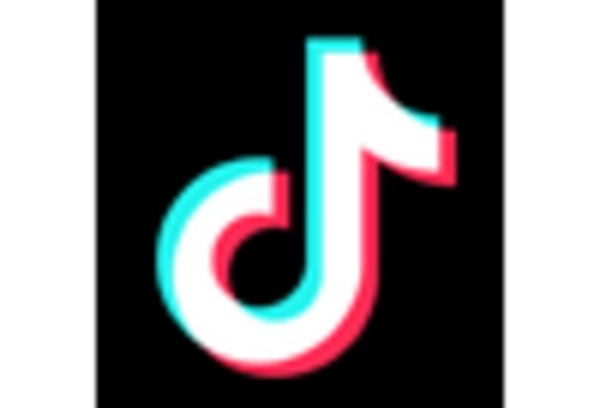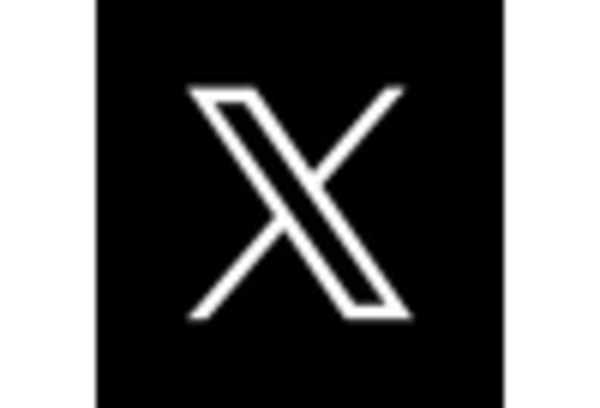Rise of Video Content
The Influencer Market is witnessing a significant rise in the popularity of video content, which has become a preferred medium for audience engagement. Platforms such as YouTube and TikTok have propelled video content to the forefront of digital marketing strategies. Research indicates that video content generates 1200% more shares than text and image content combined, highlighting its effectiveness in capturing audience attention. This trend has prompted brands to collaborate with influencers who specialize in video production, thereby enhancing their storytelling capabilities. As the demand for engaging video content continues to grow, the Influencer Market is expected to evolve, with a greater emphasis on video-centric campaigns.
Evolving Consumer Preferences
The Influencer Market is experiencing a notable shift in consumer preferences, as audiences increasingly seek authenticity and relatability in their interactions with brands. This trend has led to a rise in demand for influencers who can create genuine connections with their followers. According to recent data, approximately 70% of consumers are more likely to trust a brand when it is endorsed by an influencer they follow. This indicates that brands are adapting their marketing strategies to leverage these authentic relationships, thereby enhancing their visibility and engagement. As a result, the Influencer Market is likely to continue evolving, with brands prioritizing partnerships that resonate with their target demographics.
Data-Driven Marketing Strategies
The Influencer Market is increasingly adopting data-driven marketing strategies to enhance campaign effectiveness. Brands are leveraging analytics to identify key performance indicators and measure the impact of influencer collaborations. Recent studies indicate that campaigns utilizing data analytics can achieve up to 30% higher engagement rates compared to traditional marketing methods. This shift towards data-driven approaches allows brands to optimize their influencer partnerships, ensuring that they align with their target audience's preferences. As a result, the Influencer Market is likely to witness a surge in demand for influencers who can provide measurable results, thereby enhancing the overall effectiveness of marketing campaigns.
Increased Focus on Niche Markets
The Influencer Market is increasingly focusing on niche markets, as brands recognize the value of targeting specific audiences. Influencers who cater to specialized interests or demographics often yield higher engagement rates and conversion levels. For example, influencers in the health and wellness sector have demonstrated a 20% higher engagement rate compared to those in broader categories. This trend suggests that brands are shifting their marketing strategies to collaborate with niche influencers who can effectively reach and resonate with their target consumers. Consequently, the Influencer Market is likely to see a rise in partnerships that prioritize niche audiences, enhancing the overall effectiveness of marketing campaigns.
Expansion of Social Media Platforms
The Influencer Market is significantly influenced by the continuous expansion of social media platforms. As new platforms emerge and existing ones evolve, influencers gain access to diverse audiences, thereby increasing their potential reach. For instance, platforms like TikTok and Instagram have seen exponential growth in user engagement, with TikTok reporting over 1 billion active users. This expansion allows influencers to diversify their content and engage with followers in innovative ways. Consequently, brands are increasingly investing in influencer partnerships across multiple platforms to maximize their marketing efforts. This trend suggests that the Influencer Market will likely see sustained growth as brands adapt to the changing landscape of social media.
